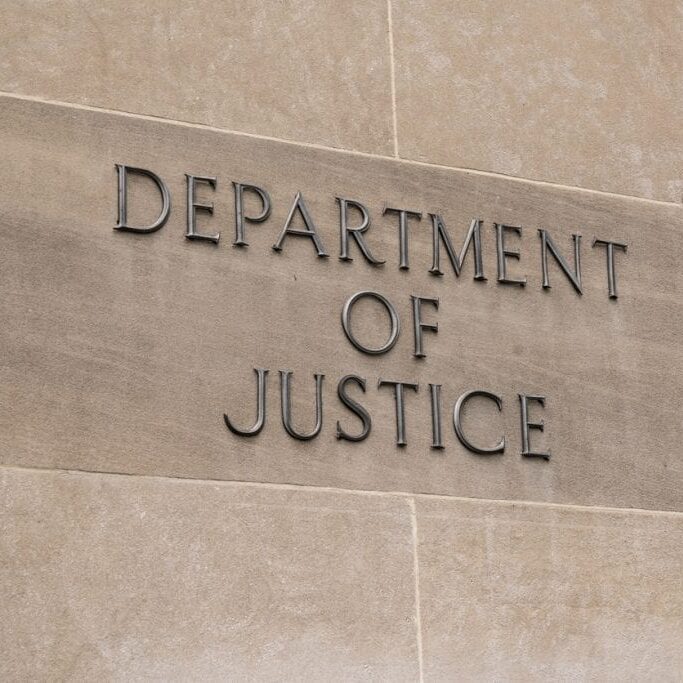Insights < BACK TO ALL INSIGHTS
Update on 1/14/19 OLC Wire Act Opinion – All Eyes on New Hampshire
Update on 1/14/19 OLC Wire Act Opinion – All Eyes on New Hampshire
By: Jeff Ifrah
(This post was originally published on 1/15/2019 and updated on 4/8/2019)
On Jan. 14, 2019, the Department of Justice’s Office of Legal Counsel issued an opinion reversing its 2011 position on the Wire Act and sports betting, contradicting not just itself but decisions by at least two District Courts and dicta by the U.S. Supreme Court by maintaining that the Wire Act prohibits all interstate wagering activity. This Opinion has not yet been implemented into an enforcement action, so worry about the legality of sports betting and online gaming may be premature. However, the Opinion seeks to push these questions to eventual litigation and clarification by the courts or action by Congress.
Background
In 2011, the Department of Justice (DOJ) was asked by two states poised to start state lotteries whether those operations could trigger federal prosecutions under 18 USC 1084 (“The Wire Act”). The Department obtained an opinion from the Office of Legal Counsel (“OLC”) which announced that the Wire Act’s prohibitions were limited to sports betting. Consequently, the two states began to run, and continue to run, lotteries that include intermediate routing.
Relatedly, relying upon this DOJ pronouncement, states have engaged in interstate compacts to facilitate their gaming industries. While there have been some U.S. District Court opinions that challenged the logic behind the 2011 OLC Memo, the only appellate decisions to address the issue have reached the same conclusion regarding the Wire Act. See In re MasterCard Int’l Inc., Internet Gambling Litig., 132 F. Supp. 2d 468, 480 (E.D. La. 2001), aff’d, 313 F.3d 257 (5th Cir. 2002); see also United States v. Lyons, 740 F.3d 702 (1st Cir. 2014) (1st Circuit Court of Appeals noting with approval that district court instructed jury that the Wire Act applied only to sports betting). More recently, the Supreme Court’s opinion in Murphy v. NCAA, 138 U.S. 1641 (2018) included a reference to the Wire Act as prohibiting sporting events and contests (only).
The 1/14/19 Opinion
On Jan. 14, 2019, the DOJ posted a new OLC Opinion declaring that the Wire Act extends beyond sports betting to include online casino games and poker, activities which have been legalized in the states of New Jersey, Delaware, Nevada, and Pennsylvania.
The Opinion glosses over case law precedent and largely ignores the legislative history that accompanied the Wire Act, which supports the original 2011 Memo’s take on the Wire Act’s reach being limited to sports betting.
Consistent with that lack of legal analysis, the Opinion cites, as one reason to support the Department’s change in position, the need for “clarification” through litigation. In other words, the new Opinion invites appellate or Supreme Court review of their view of the Wire Act’s application, while ignoring current case law on that very issue.
It is worth noting that OLC opinions are not binding precedent and have no immediate or discernible effect upon federal prosecutorial priorities. This change in position, then, does not mean that U.S. Attorney Offices or Department of Justice Criminal Division sections will suddenly seek out federal prosecutions of online gaming where some aspect of the betting touches jurisdictions where gambling is illegal under state law. Rather, this Opinion is merely a change in interpretation and it remains to be seen whether this will be a new enforcement policy for the Department of Justice.
Sports Betting Avoids Violating the Wire Act
Gaming operators and regulators will now be considering how this Opinion will impact the gaming industry.
As the Wire Act has always directly touched on sports book, the implications for this vertical are unchanged. Online sportsbooks have always had to address the challenges and issues presented by the Wire Act and the landscape remains the same for this vertical.
However, this Opinion has a significant impact on the online casino, poker, and lottery verticals, and this development reverts the Department of Justice guidance to the pre-2011 Opinion days. State lawmakers and gaming operators will need to evaluate how to structure the online gaming environment to be fully intrastate – as they have for online sports betting. Further, this will also change the options for cross-state liquidity.
Is Online Gaming in New Jersey, Pennsylvania, Delaware, and Nevada Illegal Now?
Ultimately, it is critical to keep in mind that this Opinion is merely that – an opinion. It does not have the force of a law or court opinions, and it would require the Department of Justice to affirmatively act to enforce this new interpretation. While courts may look to this opinion in their analysis, it is not binding on their interpretation. In fact, other court opinions such as In re Mastercard, are likely to be more persuasive to a court considering the issue in 2019 or beyond.
What’s Next?
As the new Opinion concedes, there are routes to challenge this interpretation. The first would be advocating directly to Congress to finally amend the Wire Act so that it properly addresses the technological landscape of the modern age.
The second would be court intervention to analyze whether the Wire Act is properly applied to all online wagering information.
Indeed, the New Hampshire Lottery Commission and its service provider, NeoPollard, filed suit in February against the government seeking a ruling on the government’s new interpretation of the Wire Act. In addition to several other states, the iDevelopment & Economic Association (iDEA Growth), whose membership represents all sectors of the online gaming industry, have filed amicus briefs in support of the plaintiffs in New Hampshire. The plaintiffs and government are scheduled to have their case heard in New Hampshire on April 11, and a ruling is expected before the middle of June, which is when the government’s self-imposed 150-day forbearance period (during which it is refraining from initiating Wire Act prosecutions under its new interpretation) is set to expire. Of course, there could be additional litigation or appeals of the New Hampshire court’s decision.
In the meantime, on February 28, Deputy Attorney General Rod Rosenstein issued a memorandum stating that federal prosecutors should refrain from initiating new prosecutions under the new interpretation of the Wire Act until June 14. More recently, on April 8, the Deputy Attorney General issued an additional memorandum instructing federal prosecutors to refrain from initiating any prosecutions of lotteries and their vendors, pending the Department of Justice’s additional review as to whether lotteries are covered by the Wire Act.
We will provide updates on new developments regarding the applicability of the Wire Act to non-lottery gaming entities as information becomes publicly available.





